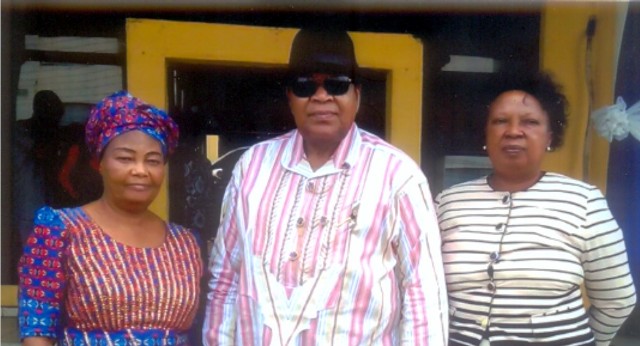Business
Experts Seek Increased Support For Non-Oil Exports

Operators in the Organised Private Sector (OPS) have called for improved production capacity for non-oil exports in 2017.
They told The Tide source yesterday in Lagos that the drop in global oil prices made it imperative for the nation to vigorously pursue broader economic diversification in the New Year.
According to them, the oil price decline has negatively affected the naira.
Mr Bassey Cobham, National President of NACCIMA, urged the Federal Government to carry the private sector along in policy implementation, especially in manufacturing, agriculture and export.
“This is necessary for the country to realise its economic diversification goal.
“The past six months has remained bleak, however, there are encouraging signs with the foreign reserves rising steadily since mid-October, according to a Central Bank of Nigeria report.
“The global price of crude oil is marginally increasing, with the OPEC daily basket price currently at $51.99.
“But this does not mean we should rest on our oars,’’ Cobham said.
“If the Export Expansion Grant can be revived, as we have been advocating, there will be an increase in production of non-oil exports,” he added.
Mr Shehu Abdulkadir, Managing Director of Casmine Assyer, a government-approved export inspection firm, said informal export activities accounted for more than 70 per cent of the nation’s non-oil exports.
Abdulkadir emphasised the need for a formalisation of informal and illegal export activities for the nation to reap its benefits.
According to him, large volume of non-oil export commodities like agricultural products, food and industrial products are being shipped through other African countries, because they have the right structures like product testing laboratories in place.
Director-General, Lagos Chamber of Commerce and IndustryMr. Muda Yusuf said that the flexible exchange rate policy introduced by the CBN has provided mixed results.
He observed that while the official market rate of the naira to the U.S dollar stands at N315 the parallel market rate hovers between N450 and N482.
Yusuf stressed that a single digit interest rate was critical to stimulating the real sector of the economy and enhancing access to finance to increase economic activities in the country.
Director-General, Nigerian Export Promotion Council Mr. Segun Awolowo told our source that the council was working with other relevant organisations to boost the capacity of non-oil exporters.
Awolowo listed such organisations to include the Industrial Training Fund, Nigerian Customs Service and banks.
According to him, the number of non-oil exporters trained by the council between 2015 and 2016 had risen by 50 per cent.
He identified capacity building, lack of access to funds as some of the pressing needs of non-oil exporters, in spite of Nigeria being the largest producer of most agricultural commodities in the world.
Awolowo said that government needed to increase its support to the non-oil export sector in 2017.
He described the sector as an untapped goldmine for the nation, because of the huge global demand for Nigerian products.
Transport
Automated Points Concession : FAAN Workers Gave 72hrs To Revise Decisions In PH

Transport
FAAN Announces Pick-Up Points for Go-Cashless Cards

Business
Fidelity Bank To Empower Women With Sustainable Entrepreneurship Skills, HAP2.0
-
Politics4 days ago
2027: NIGERIANS FAULT INEC ON DIGITAL MEMBERSHIP REGISTER DIRECTIVE
-

 Environment4 days ago
Environment4 days agoLAWMA Director Says Sweeping Reforms Have Improved Waste Collection
-
Politics4 days ago
LP Crisis: Ex-NWC Member Dumps Dumps Abure Faction
-

 Politics4 days ago
Politics4 days agoUmahi Dismisses Allegations On Social Media, Insists On Projects Delivery
-

 Sports4 days ago
Sports4 days agoAbia Not Sure To Secure continental Ticket
-
Politics4 days ago
NATASHA ELECTRIC VEHICLES INITIATIVE IN KOGI CENTRAL
-
Sports4 days ago
La Liga: Yamal Records First Career Hat-trick
-

 Sports4 days ago
Sports4 days agoPSG Extend Lead In Ligue 1

